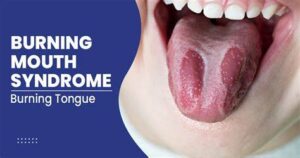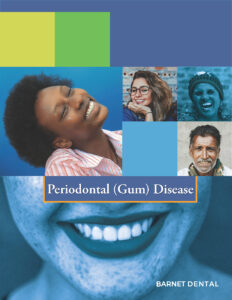What is it?
Burning mouth syndrome (BMS) is a complex and often frustrating condition characterized by a burning sensation or discomfort in the mouth, typically involving the tongue, lips, palate, gums, or throat. The discomfort may range from mild to severe and may persist for months or even years. BMS can significantly impact quality of life and may lead to difficulty eating, speaking, and performing daily activities.
Here are some key points about burning mouth syndrome:
- Symptoms:
- Burning or scalding sensation in the mouth, often described as a feeling of heat, tingling, or numbness.
- Dry mouth (xerostomia) or excessive saliva production (sialorrhea).
- Altered taste sensation, such as a metallic or bitter taste.
- Soreness or irritation of the mouth tissues, including the tongue, lips, gums, palate, or throat.
- Symptoms may worsen throughout the day, peaking in the late afternoon or evening.
- Causes:
- The exact cause of burning mouth syndrome is often difficult to determine and may involve multiple factors.
- Potential causes or contributing factors may include:
- Oral candidiasis (yeast infection), oral thrush, or other oral infections.
- Dry mouth (xerostomia) due to reduced saliva production, which can be caused by medications, systemic conditions, or salivary gland dysfunction.
- Nutritional deficiencies, such as vitamin B12 deficiency, iron deficiency, or folate deficiency.
- Hormonal changes, particularly in women during menopause or hormonal fluctuations.
- Psychological factors, such as stress, anxiety, depression, or psychological disorders.
- Neurological disorders or nerve damage, such as trigeminal neuralgia or neuropathic pain syndromes.
- Allergic reactions or sensitivity to certain foods, food additives, dental materials, or oral hygiene products.
- Diagnosis:
- Diagnosis of burning mouth syndrome involves a comprehensive evaluation by a healthcare provider, typically a dentist, oral medicine specialist, or otolaryngologist.
- Medical and dental history, including medication use, dietary habits, oral hygiene practices, and presence of underlying medical conditions or psychological factors.
- Clinical examination of the oral cavity, including assessment of oral mucosa, salivary gland function, and presence of oral infections or lesions.
- Laboratory tests, such as blood tests to assess for nutritional deficiencies or systemic conditions, and oral swabs or cultures to evaluate for oral infections.
- Treatment:
- Treatment of burning mouth syndrome aims to alleviate symptoms, address underlying causes or contributing factors, and improve quality of life.
- Management options may include:
- Symptomatic relief measures, such as topical oral analgesics, mouth rinses, or oral moisturizers to soothe and hydrate the oral tissues.
- Medications, such as tricyclic antidepressants, anticonvulsants, benzodiazepines, or topical capsaicin, to manage neuropathic pain or underlying psychological factors.
- Correction of nutritional deficiencies through dietary modifications or supplementation with vitamins or minerals.
- Stress management techniques, relaxation therapies, or counseling to address psychological factors contributing to symptoms.
- Avoidance of potential triggers or irritants, such as spicy foods, acidic beverages, tobacco, alcohol, or irritating oral hygiene products.
- Referral to specialists, such as oral medicine specialists, neurologists, or psychologists, for further evaluation and management of underlying conditions.
- Prognosis:
- The prognosis for burning mouth syndrome varies depending on the underlying cause, severity of symptoms, and response to treatment.
- Some individuals may experience spontaneous resolution or improvement of symptoms over time, while others may require ongoing management and support.
- Multidisciplinary approach involving dental, medical, and psychological interventions may be necessary for comprehensive management of burning mouth syndrome.
In summary, burning mouth syndrome is a complex and often challenging condition characterized by a burning sensation or discomfort in the mouth. It can have multiple potential causes or contributing factors and may require a comprehensive evaluation and management approach involving dental, medical, and psychological interventions. Treatment aims to alleviate symptoms, address underlying causes, and improve quality of life for individuals affected by this condition.

